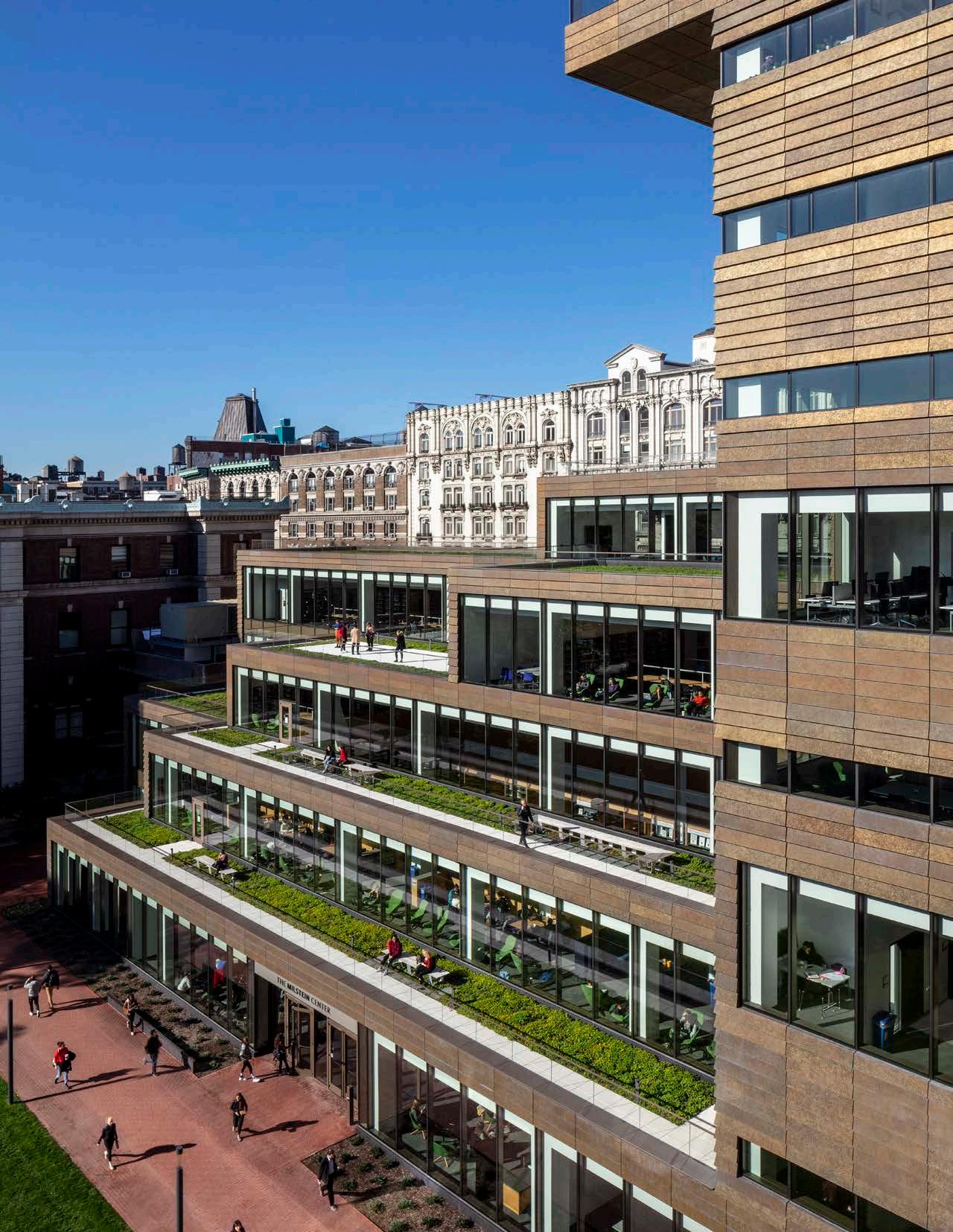
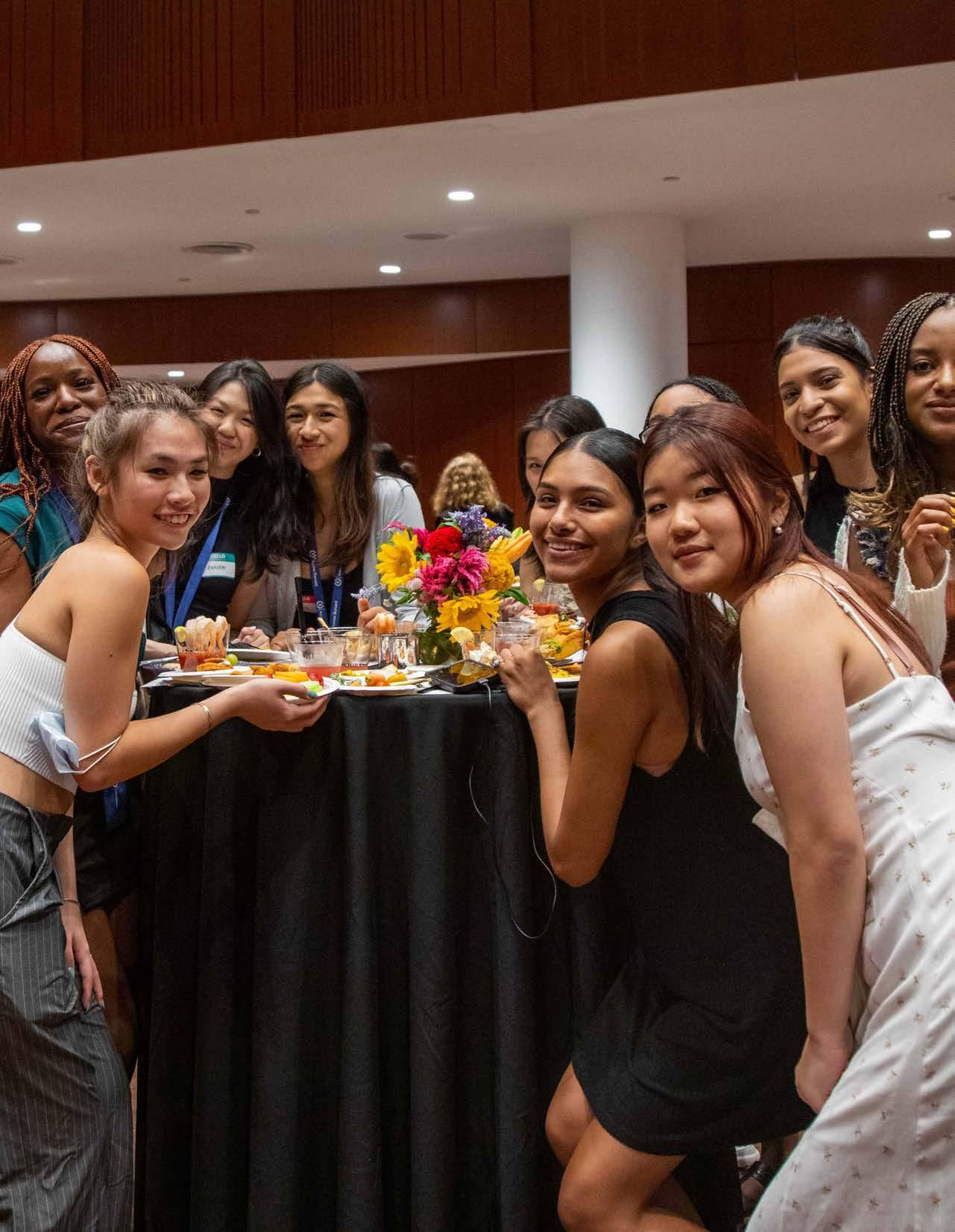



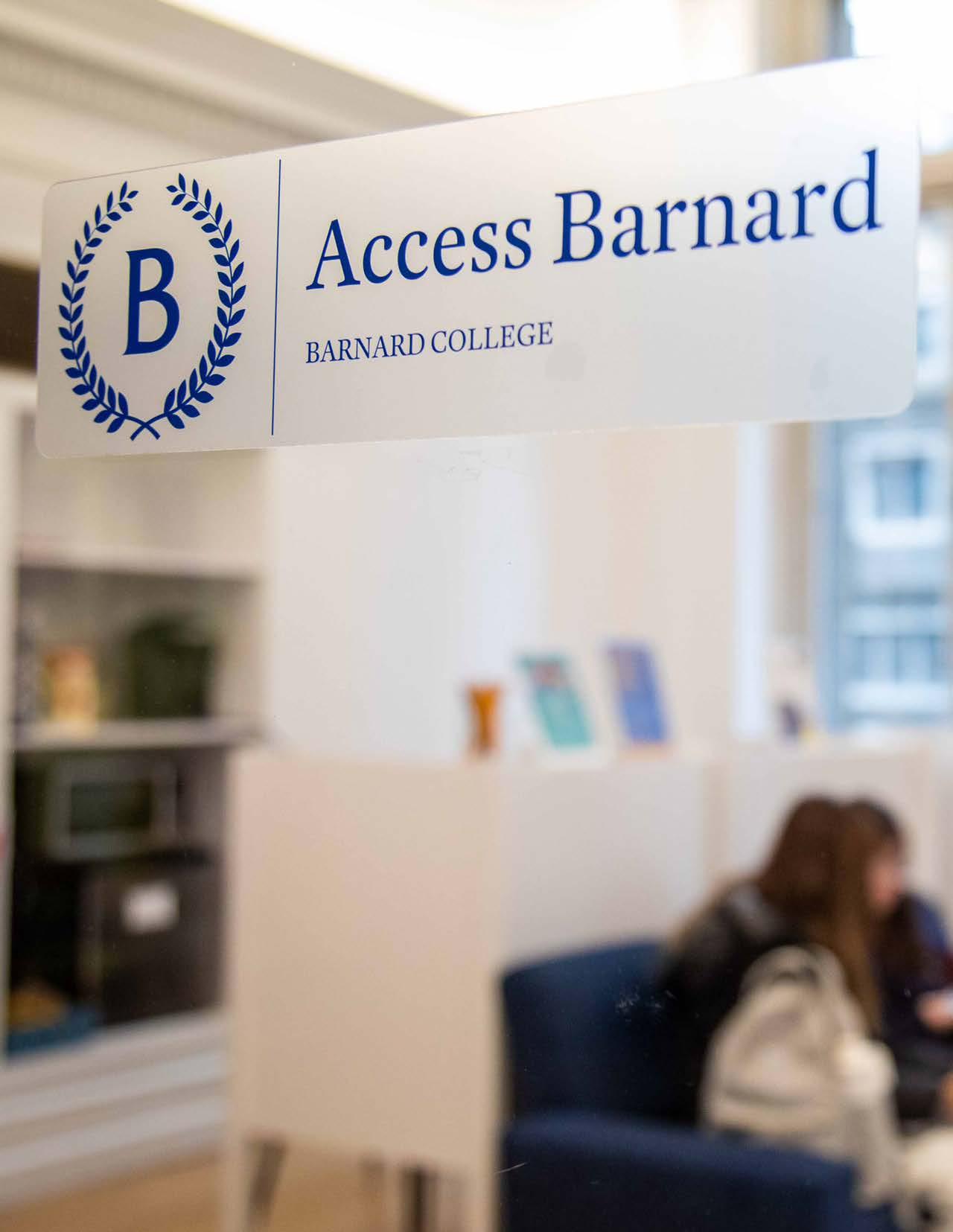
Access Barnard’s space in Milbank Hall has become a hub for international students, first-generation students, and Opportunity Program Scholars.
Access Barnard serves as the hub of College efforts to enhance the academic experiences and promote the inclusion and excellence of first-generation, lowincome, and international students in their transition to and persistence through the Barnard experience.
We value:
• celebrating identities
• cultivating community and belonging
• empowering exploration and building allyship
• holistic development and self-advocacy
• mentoring others
Access Barnard is home to First-Generation/Low-Income Student Initiatives (FLI), International Student Services (ISS), and Opportunity Programs (OP). Opportunity Programs represents two New York State-funded enrichment programs at Barnard:
• Higher Education Opportunity Program (HEOP) gives bright and motivated students who are economically disadvantaged access to higher education. Once a student is admitted to Barnard as an Arthur O. Eve HEOP Scholar, the program provides academic support services, funding, and advising.
• Collegiate Science Entry Program (CSTEP) is an enrichment program designed to foster students’ academic success in preparing for professional licensure or careers in mathematics, science, technology, or in social work, law, teaching, or health-related fields.
During the exciting 2022-2023 academic year, Access Barnard served one-third of the College population.
In its third academic year, Access Barnard fully established itself as the home base for students who identify as first-generation, international, or low-income. The department manages the Peer Mentoring Program and Peer Academic Advisors, as well as the Access Barnard Lending Library and Supplemental Academic Support Application (SASA). The latter of these provided nearly $100,000 to help students cover a range of costs associated with attending Barnard. All four of these resources are open to the entire College population.
Access Barnard Core Population in 2022-2023:
500+ First in their family to attend college (First Generation)
435 International students
174 Enrolled at Barnard in an Opportunity Program
August 2022: 32% of first-year students (230) in Fall 2022’s incoming class participate in Access Barnard’s Summer Pre-Orientation Program:
• 95 first-generation students (50% growth from 2021)
• 105 international students
• 30 Opportunity Program students
September 2022: International Student Services oversees the largest enrollment of international students in Barnard’s history:
• 435 enrolled international students from >65 countries
• 59 recent graduates from outside the United States were employed and pursuing Optional Practical Training (OPT)
November 2022:
• The Supplemental Academic Support Application (SASA) surpasses $100K in awarded grant funding to students facing financial challenges
• The inaugural First-Gen Legacy Night features four FLI student speakers from each class year and a FLI Barnard faculty member
March 2023:
• Opportunity Programs hosts the 5th Annual C/STEP Bronx-Manhattan Regional Research Expo
• International Student Services debuts a new signature program: International Women’s Day Celebration
April 2023:
• International Student Services celebrates a newly designed Culture Night
• Michaela Davis-Pedlar ’23 wins first prize in the natural sciences division at the 29th Annual New York CSTEP Conference
Summer 2023:
• International Student Services processed 96 CPT (Curricular Practical Training) authorizations, the largest number on record at Barnard to date
• The long-standing Con Edison Summer Internship Grant sponsors 8 Barnard FLI students completing science research and internships
• Access Barnard launches its inaugural Summer Transition Series, reaching 315 incoming first-years and transfers with resources to help them prepare for arrival to Barnard
The 2022-23 Academic Year saw Access Barnard flourish as a single team — with an inaugural Executive Director and a newly unified leadership structure — that supports three richly intertwined student populations.
Access Barnard has become an inclusive and vibrant space for the students who identify within our population areas and is equally welcoming to those in the general study body who want to get involved in our programs. Many of these students take on leadership roles as Peer Mentors, Peer Academic Advisors, Summer Student Leaders, or Student Advisory Board members.
A College-wide initiative launched in Fall 2020, the Access Barnard Peer Mentoring Program was designed as a peer resource to support students as they navigate their transition to the Barnard community. The 2022-23 Academic Year saw a 50% increase in the number of mentees served. A total of 247 mentees participated, 196 of whom were members of Barnard’s incoming Class of 2026. From 2020 to 2023, the program has more than tripled growth in numbers of mentee participants, made up of first-years and transfers.
In Spring 2022, the Peer Mentoring Program introduced an opportunity for mentors to request funding to take mentees offsite and explore NYC, including visiting museums, seeing performances, watching movies, and/or visiting restaurants once per semester. These funds were a direct response from mentor feedback that indicated wanting to have more support for off-campus offerings. In AY 2022-2023, the program disbursed over $1,500 in mentor funds.
The Program has a unique opportunity to further cultivate leadership skills and provide personal and professional development opportunities for the 100+ mentors. In the next academic year, the program plans to implement a mentor leadership development training to not only serve as a touch point on mentoring concerns but also provide professional development opportunities for mentors.
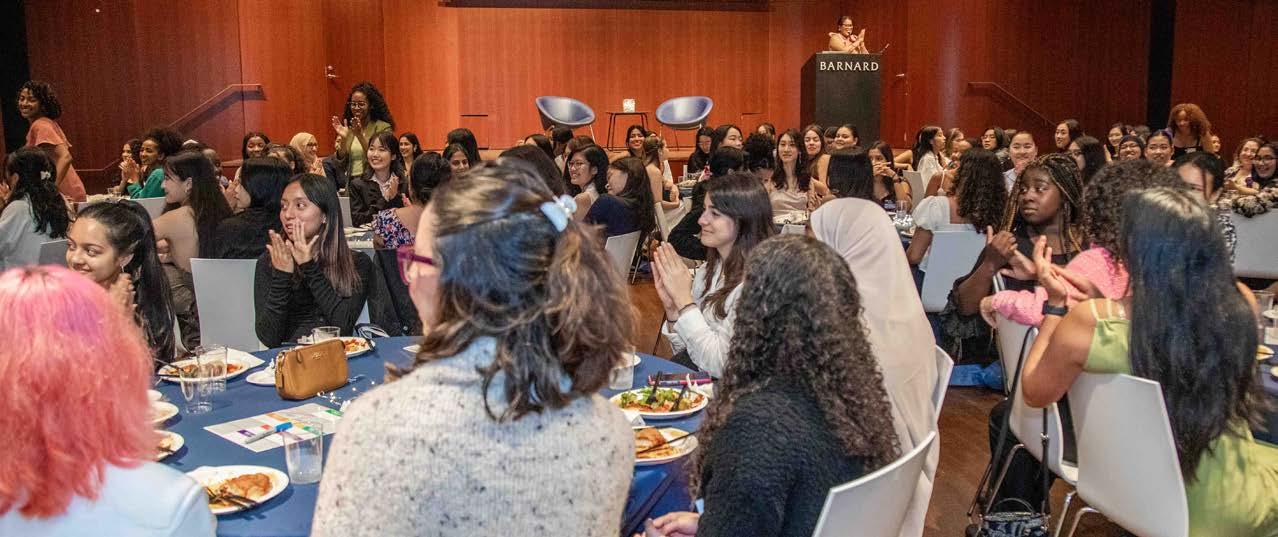
Delivering on our purpose of serving one third of the College population, Access Barnard is approaching the new academic year with renewed excitement — particularly in the way that we welcome Barnard’s students to campus. Access Barnard strives to activate first-year students early, emphasizing the lasting impact of a well-guided initial transition to life at Barnard, from the Summer Pre-Orientation Program to the inaugural First-Year Access Barnard (FAB) cohort.
This series will help incoming students navigate the Access Barnard community. Each student will have the opportunity to:
• Interact: Meet key members of the AB and Barnard community, building awareness of student resources and opportunities
• Communicate: Talk directly with subject area “experts” and peers regarding topics of interest
• Connect: Watch all sessions conveniently online — it’s as easy as checking email or social media!
We want each new Access Barnard student to feel comfortable and familiar with the AB community on the first day they set foot on campus. The Summer Transition Series will provide early exposure to concepts and information that new students may otherwise be unaware of, while enhancing the overall outreach efforts to Access Barnard’s diverse global community.
Each year, Access Barnard endeavors to improve its Summer Pre-Orientation Program, which welcomes first-years to arrive on campus early to get acclimated to the College. Expected changes in 2023 include required participation by all Opportunity Programs and International F-1 students. First-generation students opt-in to participate.
As a pilot program being offered in AY 23-24, the FAB Program will build a community of engaged first-year students who value academic excellence, intellectual and personal growth, inclusion, ethical conduct, and fully investing in the Access Barnard community. A student’s first year establishes an essential foundation for a successful educational and developmental experience. Students begin to practice the habits and skills of higher learning, thus helping to shape the academic and social climate on campus. In this vein, FAB offers a small cohort of Access Barnard students from the incoming class the opportunity to engage in heightened support during their transition to college throughout the first year.
Access Barnard aims to standardize our approach to advising across areas, developing uniform practices for tracking advising notes in Slate and receiving valuable input and feedback from the reinstated Student Advisory Board. Access Barnard also commits to further strengthening connections with campus partners such as Beyond Barnard, the Deans’ Office for Advising & Support, the Francine LeFrak Foundation Center for WellBeing, Study Abroad, and the Center for Accessibility Resources & Disability Services (CARDS).
Parent and family support and guidance is integral to student success. Particularly within first-generation, low-income, and international student space, this is even more critical in helping parents and families learn and understand more about their students’ time at Barnard.
While Access Barnard offers parent and family sessions during Pre-Orientation, Fall 2023 will see the launch of the Access Barnard Parent & Family Newsletter, complete with a Barnard Glossary of Terminology to help demystify the jargon and language used at the College. Scheduled to go out five times throughout the year, the Parent & Family Newsletter will provide information and share stories with families of Access Barnard students in the hope that it can help encourage parental coaching, community support, financial awareness, and academic support.
Access Barnard’s Community
The 2022-23 academic year Access Barnard roster included:
500+ FLI students
435 International students (including F-1 and J-1 visas)
174 Opportunity Programs scholars (96 HEOP, 67 CSTEP, and 11 BOP)
According to Fall 2022 enrollment, the Barnard student body was made up of 3,126 students, excluding those on study abroad. Of that population,
13% are international students
16% are first in their families to attend college
16% are recipients of Pell grants
Access Barnard’s Work in Support of Students in 2022-23
100 unique programs and events across a wide range of themes and topics
800 individual advising appointments
3,768 sign-in entries to the Access Barnard Lounge and Annex
97 Optional Practical Training (OPT) applications
250+ letters of support (opening a bank account, work eligibility, Commencement invitations for family members, no objection for Schengen visa applications, visa renewal support, and Social Security application support)
Measuring the Effectiveness of the Peer Mentoring Program
90% of mentees believed they were well matched
85% of mentees felt the program made a positive impact on their Barnard experience
75% of mentees felt that being part of the Peer Mentoring Program helped them feel a sense of belonging at Barnard
Peer Academic Advisors (PAAs) learned that over half of the appointments conducted during 2022-23 were made by first-gen or low-income students
30 OP Scholars participated in a Beyond Barnard summer 2022 program, receiving funding to support otherwise unpaid research or internship opportunities
Opportunity Programs provided a $225 book voucher allocation to each OP Scholar at the start of each semester to cover academic expenses such as textbooks, course access codes, course materials, and supplies
• $15,780 (Fall 2022)
• $15,284 (Spring 2023)
• $17,780 covered in travel expenses for OP commuter students
Now in its third year, the SASA continues to be one of the widely recognized resources provided by Access Barnard. During the 2022-2023 academic year, there were over 1,500 unique applications for SASA grant funding and Lending Library requests (loaner laptops, iPads, tech accessories for studies)
• $58,745 (Fall 2022 grant funding)
• $34,426 (Spring 2023 grant funding)
• $3,763 (Summer 2023 grant funding)
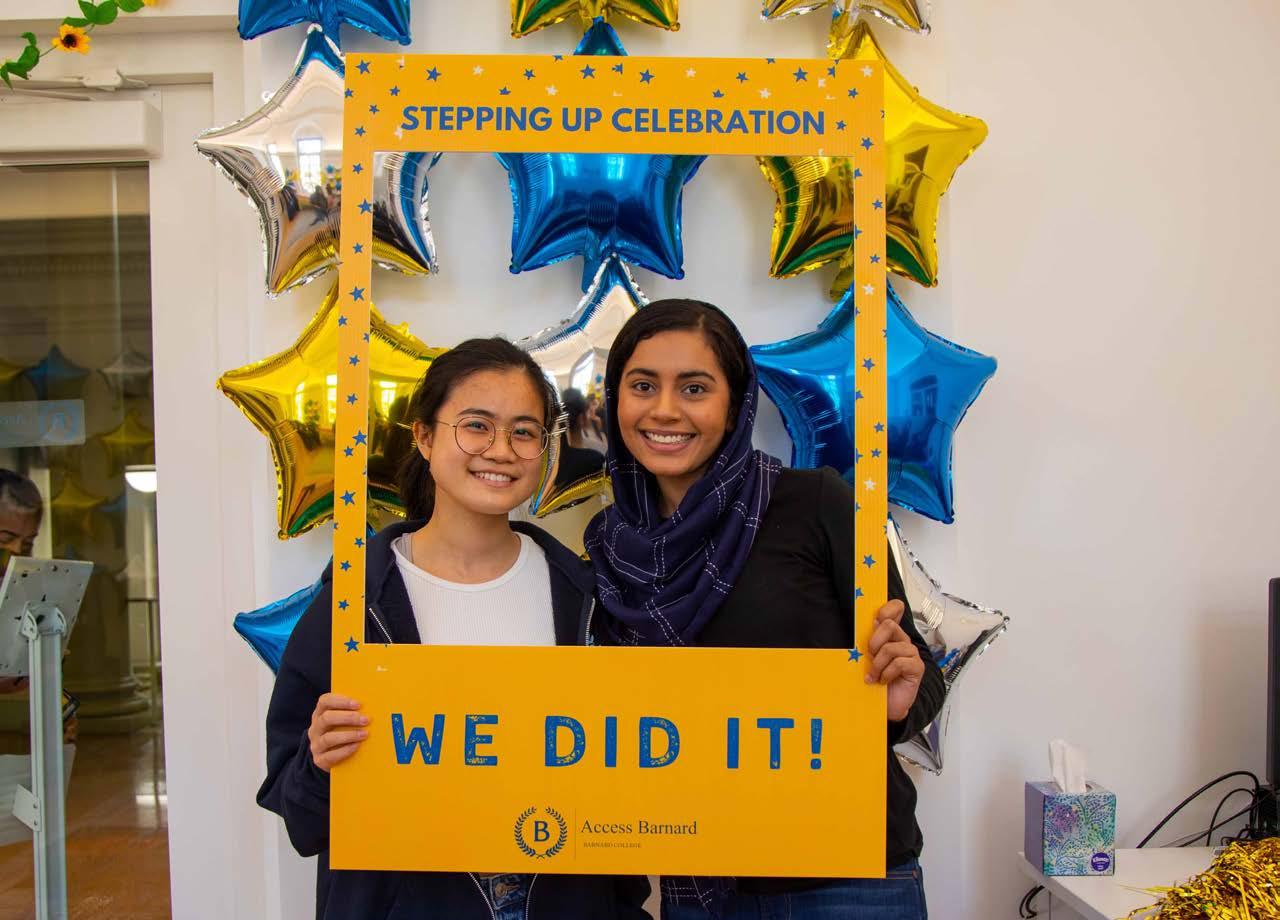
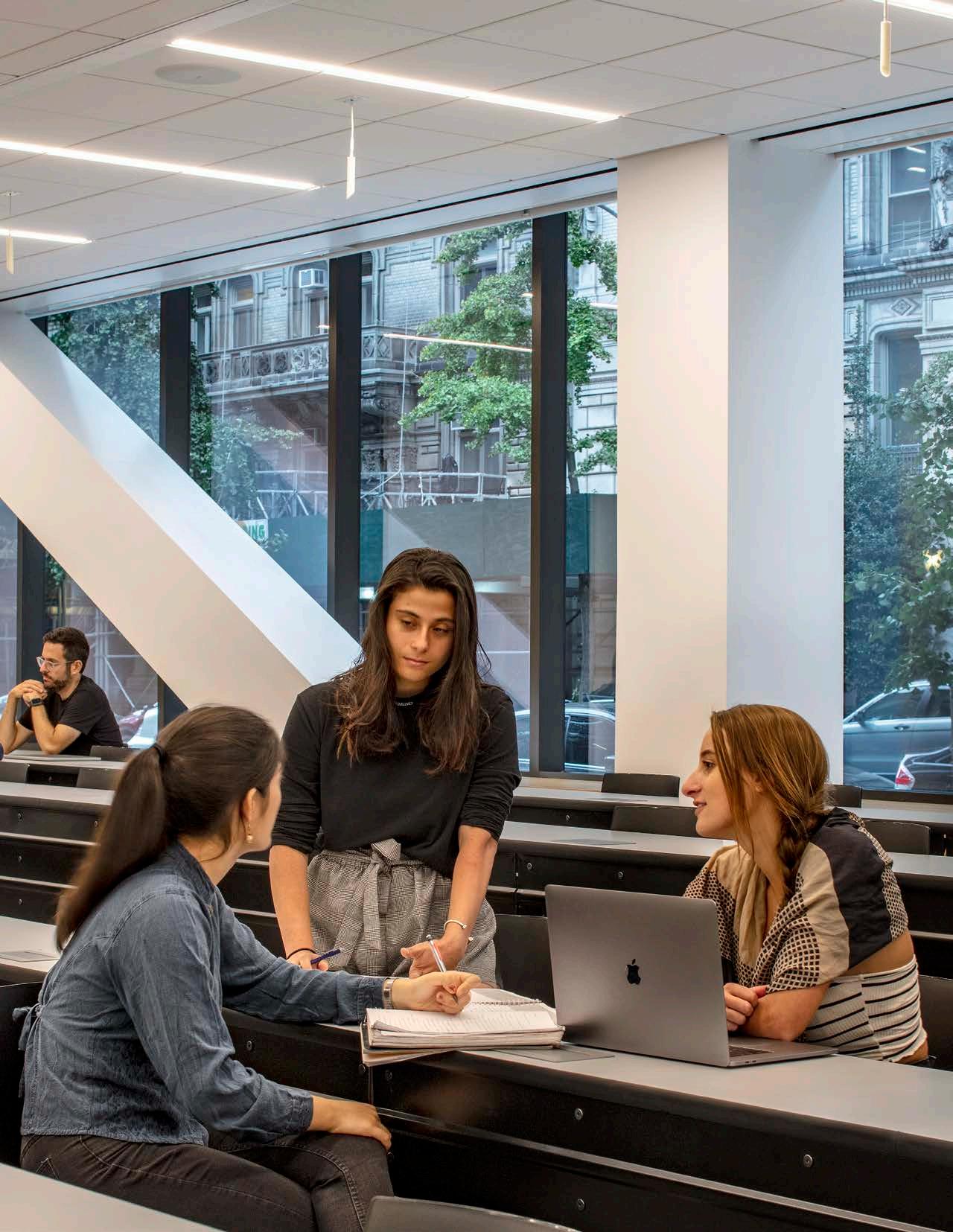
Center for Accessibility Resources & Disability Services
The Center for Accessibility Resources & Disability Services (CARDS) provides holistic support for students with disabilities from the moment they show interest in attending Barnard, through graduation and beyond.
We:
• ENGAGE students through access-related services and supports, including academic, housing, and dining accommodations.
• FOSTER the intellectual and social development of students through academic coaching and disability identity programming.
• PARTNER with students to develop a sense of community and belonging for disabled students through peer mentoring and support of the CARDS student group.
• COLLABORATE purposefully with colleagues to ensure accessibility is a campus-wide goal.
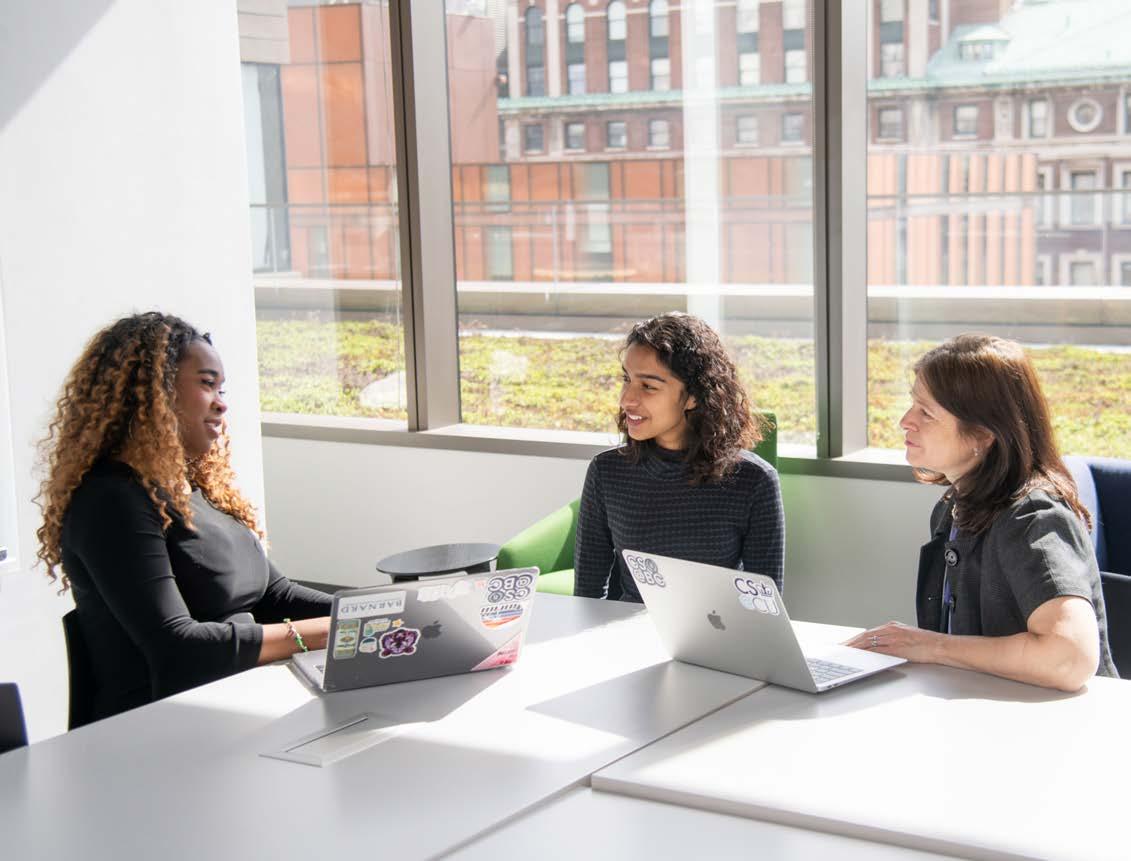
Formed in 2019 to reimagine Barnard’s delivery of accessibility resources to students, CARDS in 2022-23 completed its fourth year of reinvention and expansion. 29% of the Barnard student body was registered with CARDS in the past academic year.
2019-2020
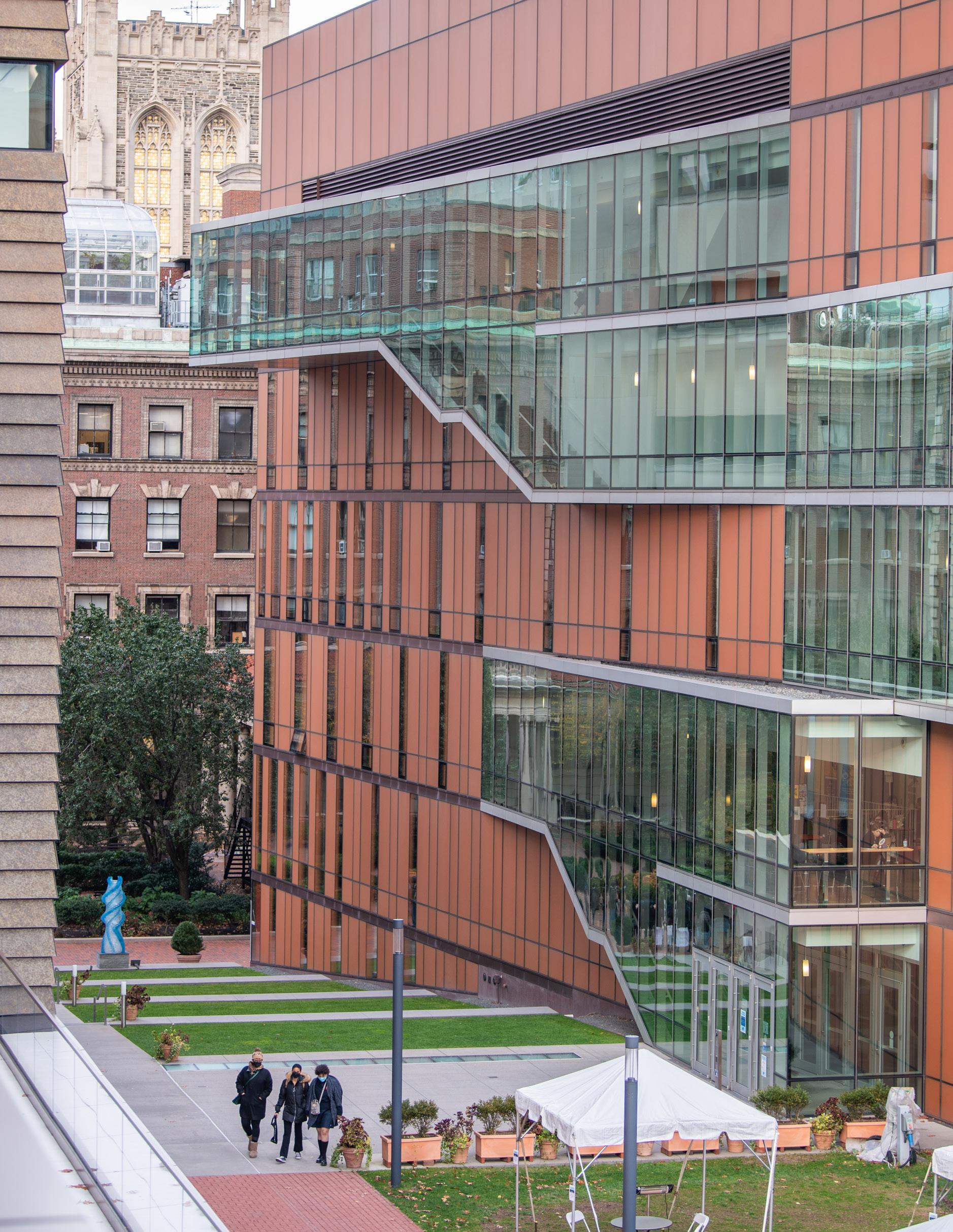
2020-2021
CARDS relaunches with a new vision for integrated services at Barnard.
CARDS quickly adapts to meet the rapidly evolving and complex challenges of students in a fully virtual environment.
2021-2022
As campus life resumed, CARDS undertook the tasks of reestablishing and broadening its mandate, training new staff, and (re)learning how to work as a team in a hybrid context.
2022-2023
For CARDS, 2022-2023 was about getting to a place of “doing” rather than becoming. CARDS has become a visible, thriving presence on campus, and the effects of visibility are evident in the strong usage of resources — with 875 students registering to use CARDS.
2023-2024
CARDS will deepen its impact through collaboration and weaving accessibility into all aspects of life at Barnard.
CARDS helps Barnard live both the letter and spirit of applicable federal, state, and local laws as they relate to the Americans with Disabilities Act and Section 504 of the Rehabilitation Act. We collaborate with faculty, staff, and students across campus to develop accommodation plans, implement accommodations, provide assistive technology, ensure accessible living spaces, and more.
But access is the floor. CARDS contributes to the goal of making all student experiences equitable, while minimizing the impact of systemic, intersectional ableism by being intentional about both bridging and belonging actions.
CARDS employs practices that create lasting systemic change for disabled students at Barnard. Our work is oriented toward long-term and long-lasting change that is independent of one person or practice.
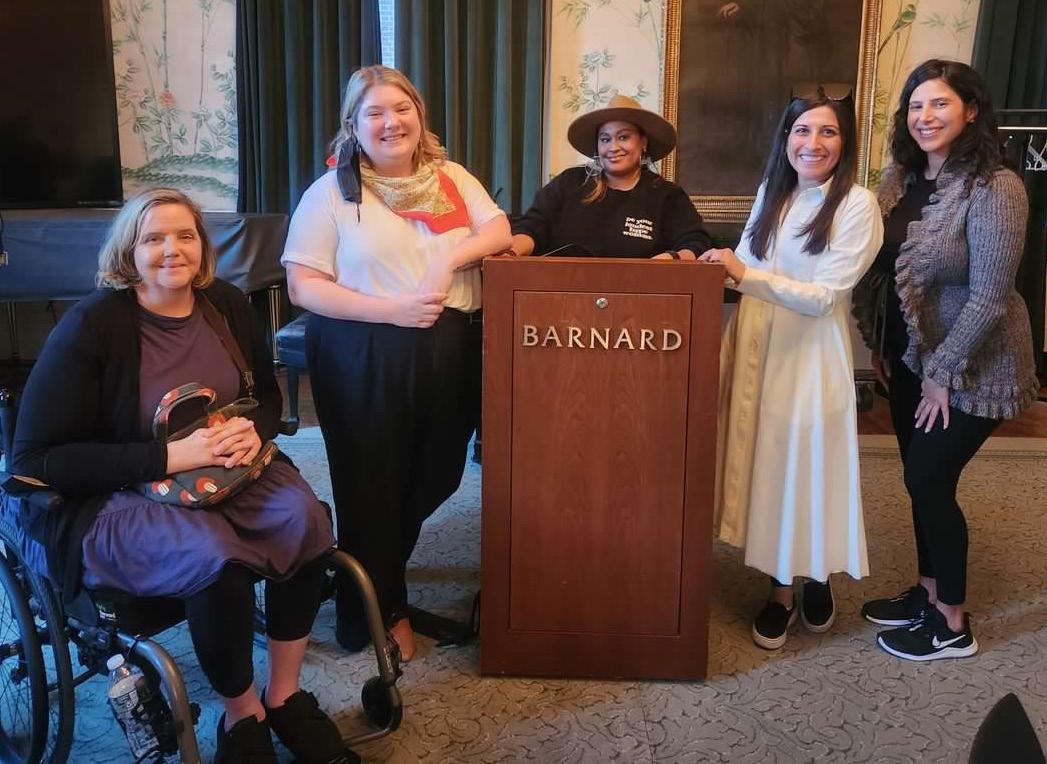
2023 Accessibility Week featured six campus-wide events hosted in partnership with a range of campus offices, culminating in a keynote event featuring artist Jen WhiteJohnson, entitled “The Anti-Ableist Art Educator Manifesto.”
In 2022-2023, a total of 875 Barnard students registered at CARDS (401 students reported more than one disability).
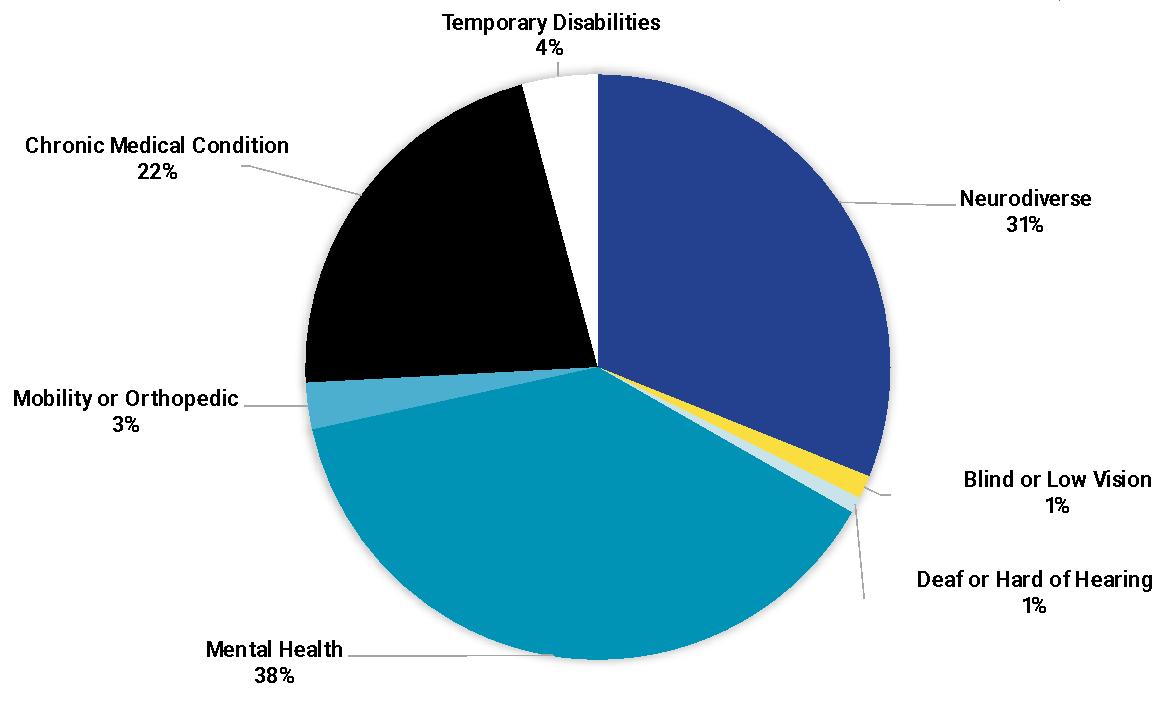
With individual accommodations requests growing to 4,865, students are taking more advantage than ever of the services provided by CARDS.
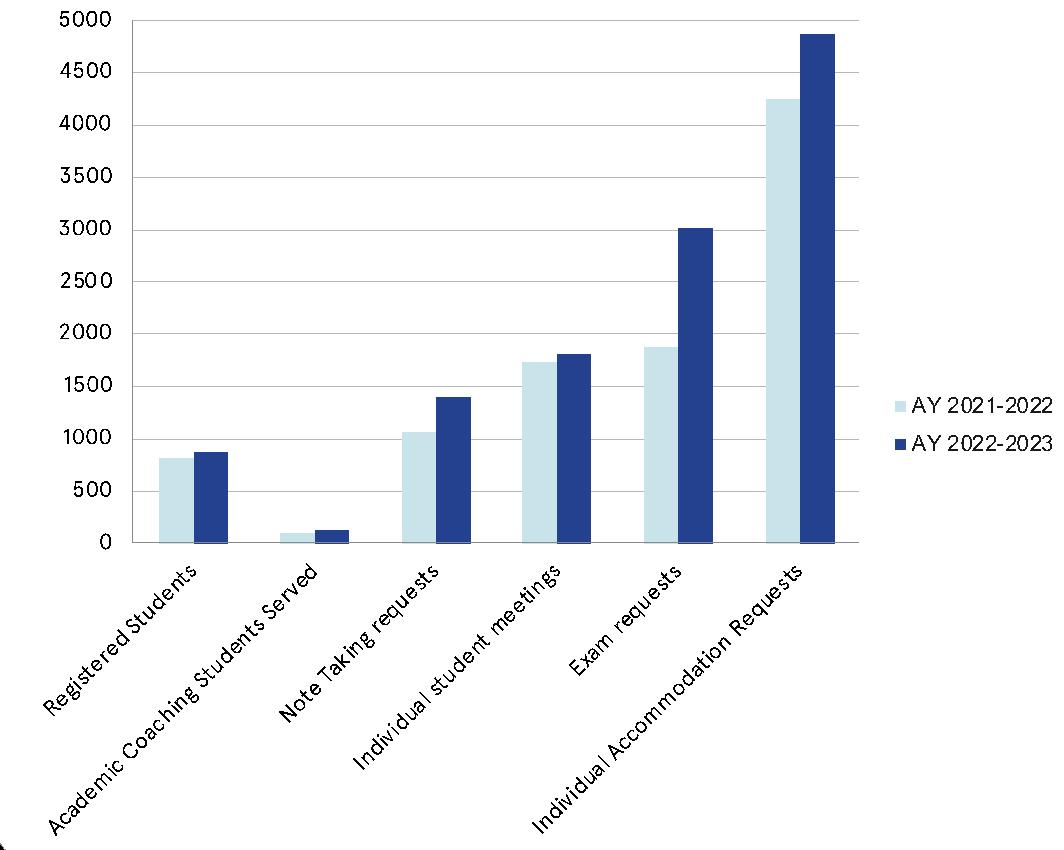
• 854 final exams were proctored (35% increase over 2021-2022).
AY 2021-2022 AY 2022-2023
• 412 notetakers were hired to support student requests for notetaking support (a 44% increase).
Purposeful collaboration with cross-campus partners allowed CARDS to help connect Barnard students and alums with one another during Leadership Week and Reunion Weekend.
To advance our work, CARDS engaged with the entire Barnard community to meet record needs while celebrating and connecting.
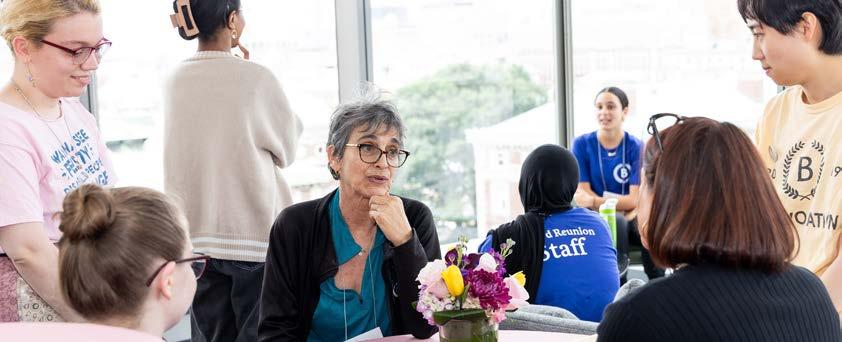
We fostered community at the Columbia University Disability Affinity Graduation.
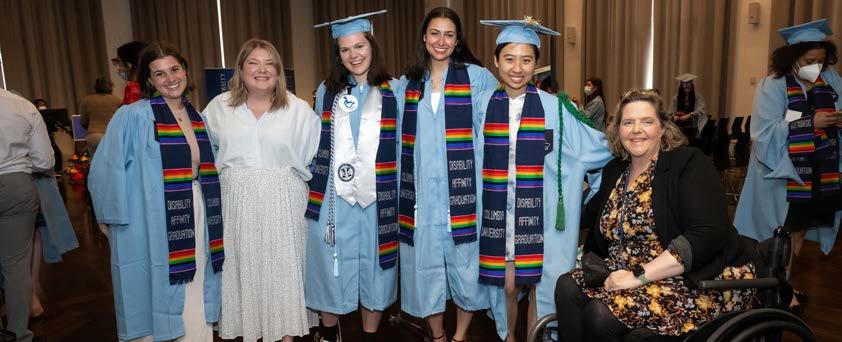
Promoting students’ intellectual and social development through peer mentoring and support of the CARDS student group
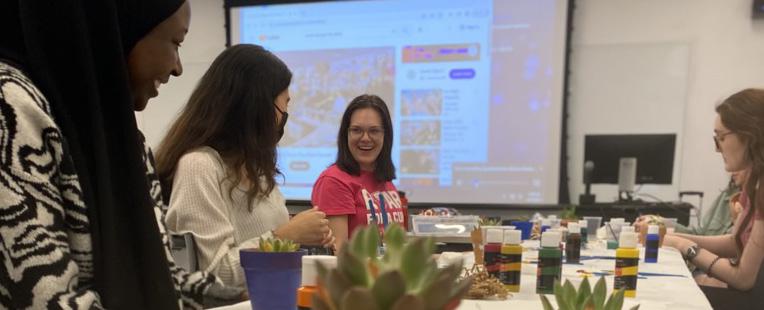
“Being a mentor for students with disabilities is an essential role that carries significant importance in promoting inclusivity, fostering personal growth, and ensuring equal opportunities for individuals facing various challenges.”
—Student feedback on Peer Mentoring Program
By the end of the 2023-24 academic year, our goal is to take all of the good growth and bloom we have created and root it into the structure of the Barnard experience. We aspire to help to change the landscape for disabled community members at Barnard by supporting our campus partners in planning for accessibility in their work. We will advance the following goals:
GOAL 1:
Promote campus-wide accessibility by offering 45-minute training sessions for divisional campus partners: “Accessibility vs. Accommodation: Planning for Inclusion for Disabled Students & Staff.”
GOAL 2:
Lead CARDS staff through the process of developing workshops designed to help campus partners understand the difference between planning for accessibility and providing accommodations.
GOAL 3:
Collaborate with the Center for Engaged Pedagogy on faculty workshops in furtherance of promoting accessibility within instructional design by offering 30- to 45-minute training sessions for faculty groups on “Accessibility vs. Accommodation: Planning for Inclusion for Disabled Students.”
GOAL 4:
Lead CARDS staff in developing procedural documents for the areas of housing, records management, case management, and graduate assistant training with the goal of formalizing operational processes in support of our daily service delivery as well as maintaining our departmental memory over time and through staff transitions. These manuals will serve as onboarding documents for the department and can also be used as examples for divisional onboarding templates.
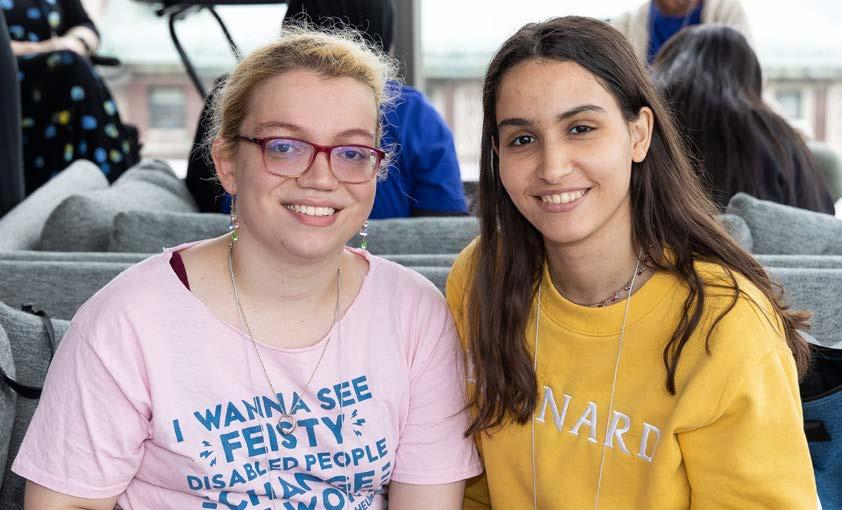
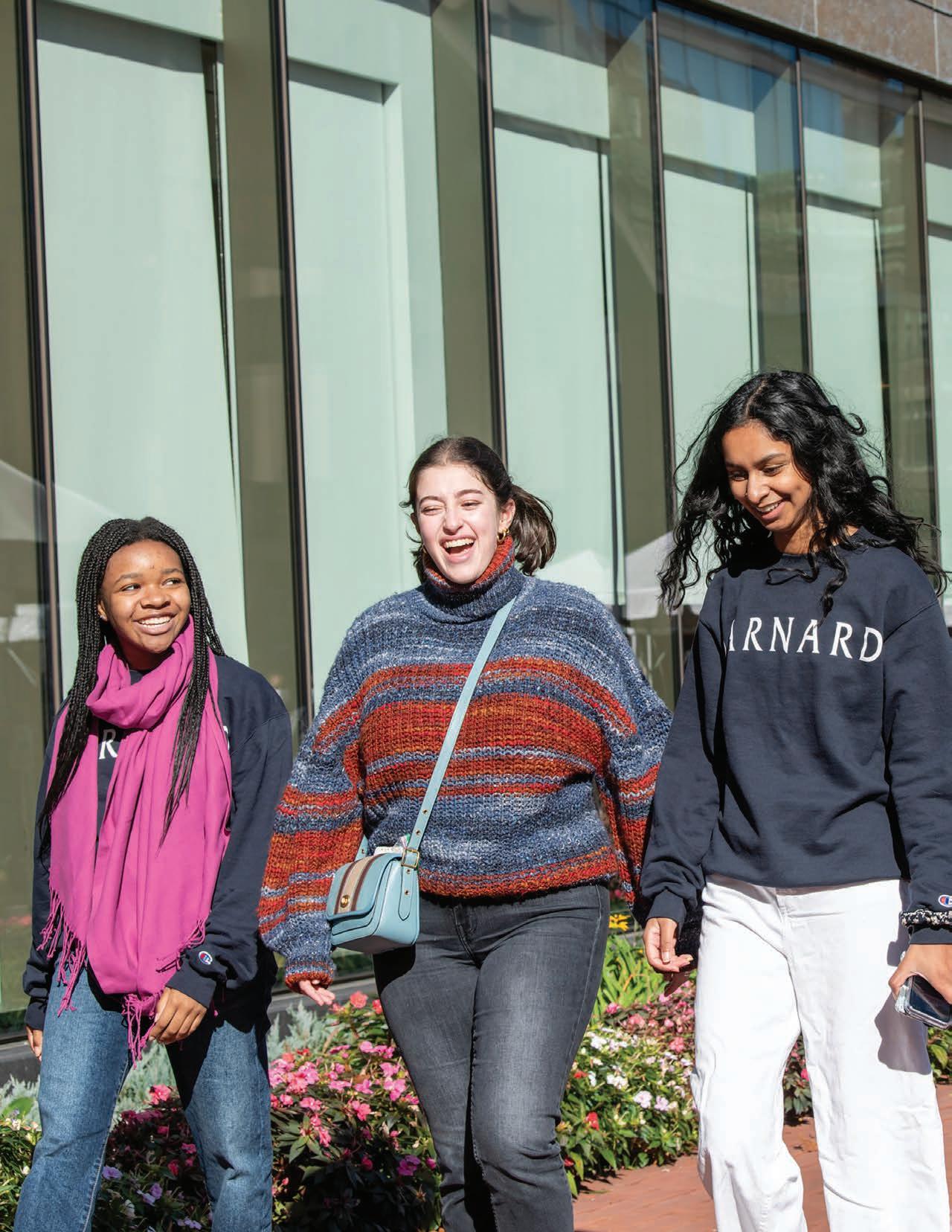
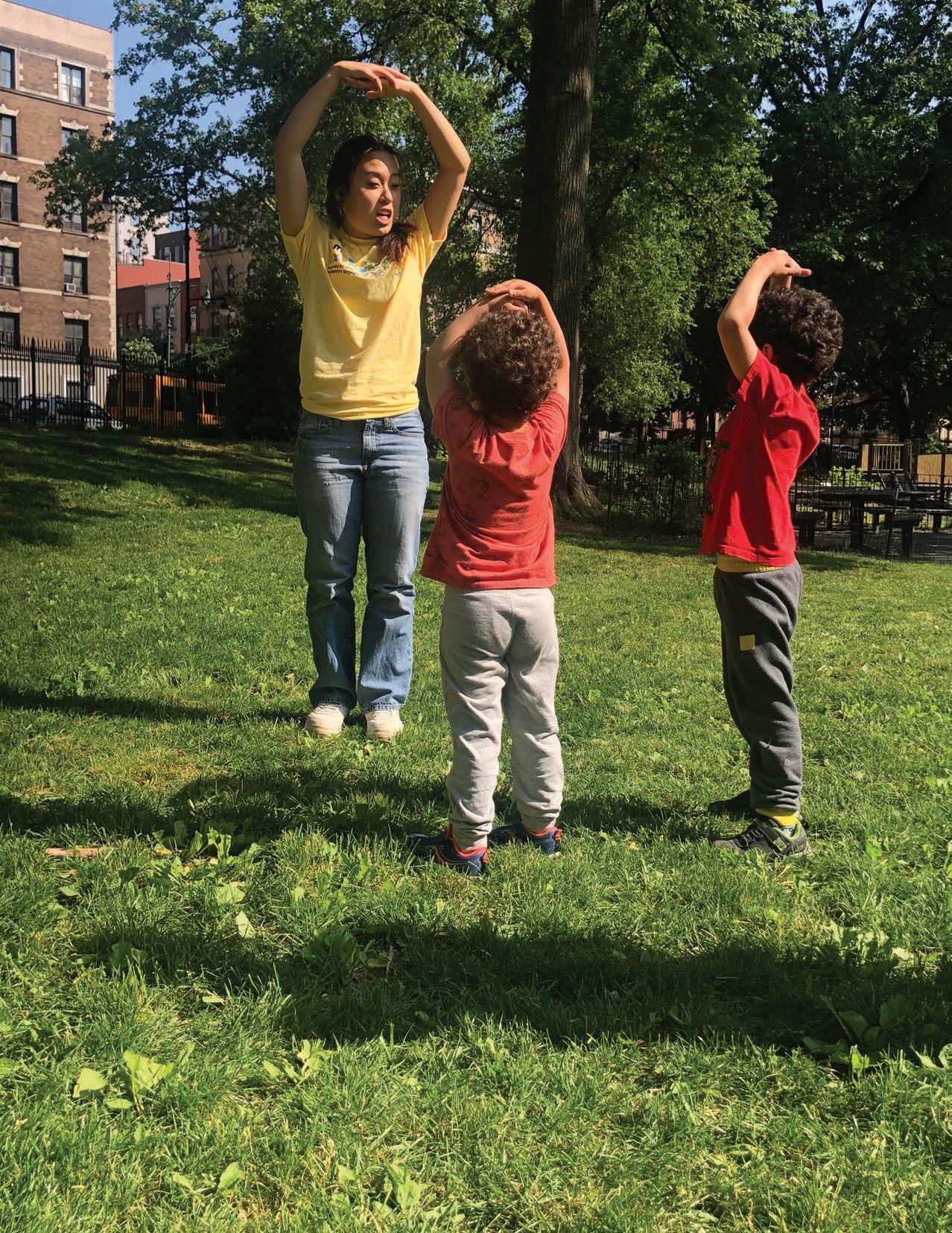
As highlighted in our mission statement, the College’s location in New York City is central to both the education it offers and its identity as a vibrant part of the city and its Harlem neighborhood. Established in February 2021, the Office of Community Engagement and Inclusion (CEI) works to foster an ecosystem of civic and community engagement on campus and off. CEI serves as an innovation hub and leader for engaged scholarship, social/community impact, and civic engagement at Barnard. Engaged scholarship refers to research, teaching, and learning activities that direct resources of the College toward pressing issues facing society. Community social impact focuses on programming that engages communities and organizations outside of Barnard in the life of the college. CEI is committed to further civic engagement through voter education, promotion of service opportunities, and building a participatory culture around urban public life. CEI promotes college-wide efforts in these areas throughout our surrounding neighborhoods, the City, and beyond.
As a revolving “front door” to students, faculty, and staff interested in ethical community engagements and like-minded community partners, CEI develops sustainable partnerships and reciprocal relationships among key stakeholders at Barnard, in the neighborhoods of Upper Manhattan, and in greater NYC. Community engagement from local to global scale prepares students for the world they will inherit, grounds research to address the critical issues facing society, and connects neighbors and external partners to the life and resources of the College.
Over the past year, CEI has made strides to enhance and increase our work with Barnard students, faculty, staff, and alums, as well as across the university system. We welcomed external community partners to Barnard to share in the rich resources of the College. Overall, CEI participated in more than 55 campus and neighborhood events.
Under the leadership of the new Director of Engaged Scholarship & Community Engagement, the office adopted a new strategic plan and piloted four new programs. CEI took the lead on programming the “Undesign the Redline” exhibit, extended through Spring 2023, and utilized it as a vehicle for community engagement with local elected officials and both practitioners and activists working on housing issues. CEI concluded and evaluated the two-year pilot of the STEAM in the City program. With much heralded success, the program has been extended into the coming academic year. We’ve compiled and published an anthology of STEAM lessons and learnings for a publication. In response to local and global events, CEI mobilized the campus community responses to welcome new migrants to NYC, encouraged literacy for children throughout our neighborhoods, supported survivors of the devastating earthquakes in Turkey and Syria, and resisted ongoing onslaughts of hate directed at local drag performers. Students working in CEI’s Community Planning Lab researched cooperative business structures in support of the Bronx-wide Community Plan for Economic Development with the Bronx Cooperative Development Initiative and its collaborators. CEI supported student leaders in areas of civic engagement, community impact, and engaged research. Furthermore, we piloted a Women in Public Policy series and welcomed local, state, and national government representatives to campus and visited NYC’s Office of Housing, Preservation, and Development.
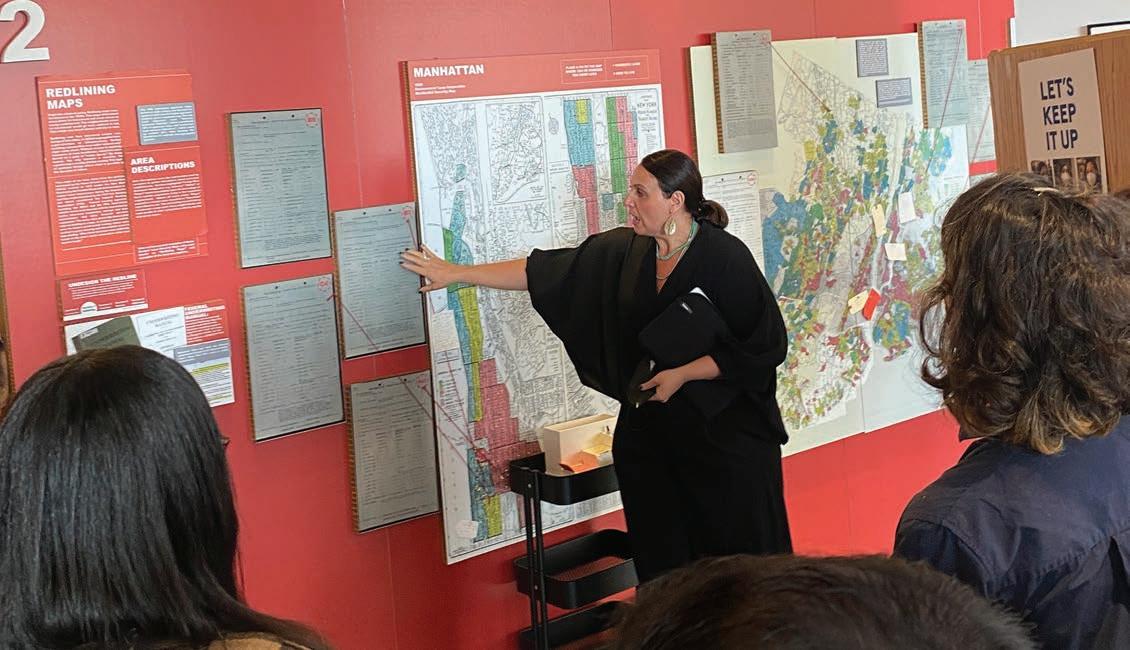
CEI’s programming resides in three distinct areas. Engaged scholarship encapsulates programs related to teaching, learning, and research for public impact. CEI supports faculty and students across the College working to address pressing societal issues. It represents and promotes this work beyond the College. Social/Community Impact programming builds relationships with external community individuals and organizations. In this area, CEI works to identify, pair, and share resources at the College with NYC communities, specifically those in the neighborhoods of Morningside Heights, Harlem, and Upper Manhattan. Civic engagement programming aims to provide students, faculty, staff, and alums with opportunities to increase urban citizenship and civic responsibility.
“Undesign the Redline”: Throughout the 2022-23 academic year, CEI supported the “Undesign the Redline” interactive exhibition, which combines history, art, and storytelling with community outreach and collaboration in order to reckon with systemic racism by examining the legacy of redlining in Barnard and Columbia’s neighborhood. In addition to guided tours for students, staff, faculty, alums, and visitors, the project included the Undesign Faculty Institute, where faculty developed ways to integrate lessons from the exhibit into their curriculum. This culminated with the Undesign Symposium, in which more than 200 students, faculty, staff, and community members presented research related to the themes of the exhibition as well as numerous related events, presentations, and programming. Staff conducted more than 12 programs and over 250 unique tours with visitors to the campus.
Community Planning Lab: CEI hosts the Community Planning Lab, a research team of students and the Director of Engaged Scholarship that work on engaged research projects related to city planning and community development. This year, student researchers completed a series of case studies in community-focused economic development for the Bronx Cooperative Development Initiative (BCDI) and their partners in the South Bronx Coalition. Students collected, analyzed, and visualized data on small businesses and institutions throughout the Bronx. In addition, our Research Coordinator, Rachel Bondra, led the team in conducting a systematic review of engaged scholarship in the 21st century for a forthcoming manuscript.
Consultations: CEI promotes ethical community engagements grounded in reciprocity and respect. Toward this end, the office consults with students and faculty working with community partners in research, teaching, and service. This year, the director delivered an “Ethical Community Engagement” workshop in classes and student training sessions. CEI worked with the Center for Engaged Pedagogy (CEP) to create a series of workshops for S-HEAL, a student club that delivers health education workshops in local high schools. More than 40 students attended each workshop.
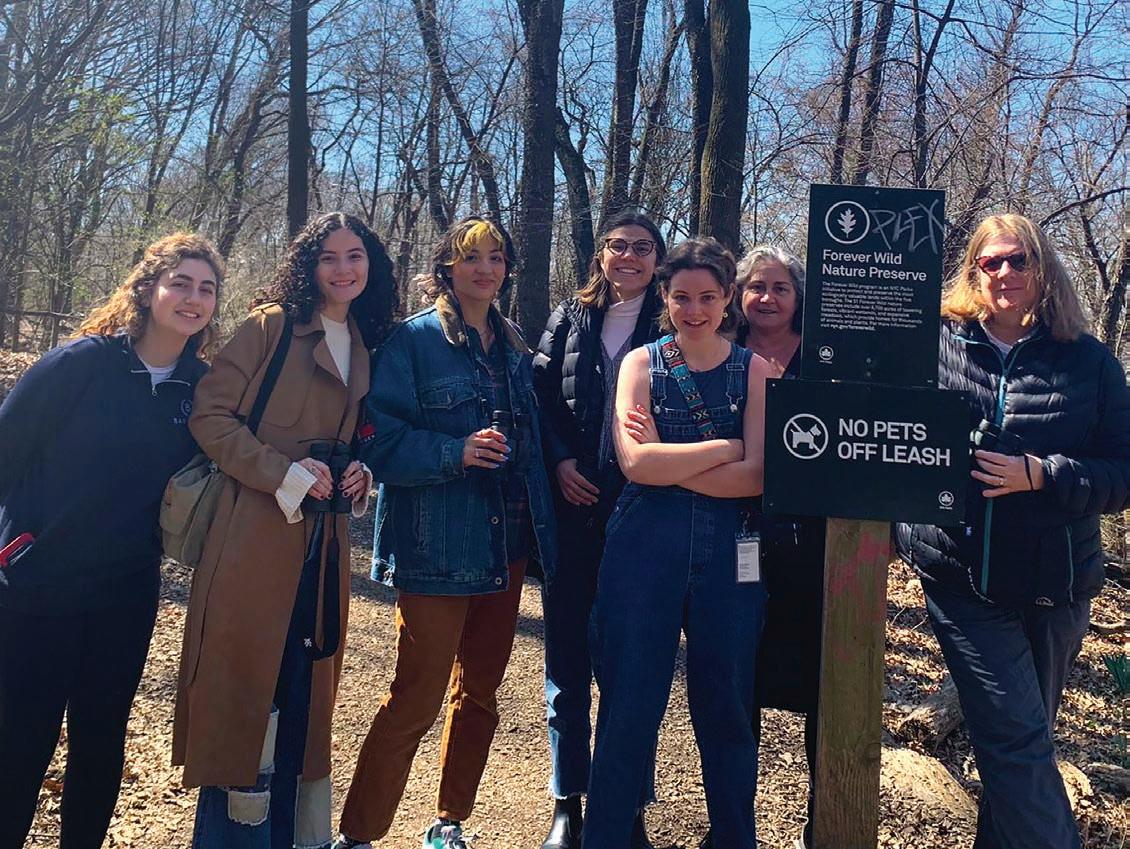
Harlem Semester: CEI facilitated review and visioning sessions with various stakeholders from Harlem Semester and presented a proposal for the program’s growth and expansion. Harlem Semester exposes students to Harlem as a community where rich cultural, social, and political legacies meet contemporary realities. Courses taught by local scholars promote access to Harlem’s venerable institutions. The proposal included recommendations such as:
• Expansion beyond the humanities to include other disciplines
• Additional investment in a Harlem internship component
• Development of an invitational summer or fall program in which Barnard could serve as a gateway to Harlem for other schools/programs around the country, specifically HBCUs.
Barnard Engages New York (be-NY): CEI participates in the be-NY advisory committee and worked with be-NY faculty to pilot a Summer Community Engagement Fellowship. The program paired seven students with faculty and/or community partners to prepare for or continue projects developed through be-NY courses. CEI coordinated a stipend, housing, and connections to citywide community organizations pursuing data-driven approaches through the Lunch & Learn series during the summer.
STEAM in the City: SiTC is a training fellowship for K-8th grade educators working in the Harlem and Morningside Heights neighborhoods. Funded by the Stavros Niarchos Foundation and supported by CEI, the program enables local teachers to partner with Barnard’s top scholars to create and implement experiential learning opportunities for their students in STEAM fields (science, technology, engineering, arts and architecture, and mathematics). The program includes an intensive summer institute in which teachers develop curriculum with faculty and staff experts on campus. Teachers also receive wraparound support throughout the year with four additional professional development sessions, in-classroom assistance from student education experience designers (SEEDs) — Barnard students trained to work with teachers to implement STEAM curriculum in classrooms — and a generous classroom budget to cover the costs of supplies and field trips to New York City institutions. SiTC welcomed its second cohort of 19 Teacher Fellows and three new student SEEDs. With support from SiTC, NYC Department of Education (DOE) students embarked on 26 field trips to numerous NYC museums and institutions and made seven visits to Barnard’s campus for STEAM-related exhibitions and activities. The SEEDs supported Teacher Fellows through 84 class visits as they launched curricular and co-curricular STEAM activities.
Morningside Explorers: From late May to June, CEI’s SEED team designed and implemented Morningside Explorers, an educational, activity-filled nature exploration program for 4–7-year-olds in Morningside Park. The 10-session program resulted from a long-standing partnership with Friends of Morningside Park. Twice a week for 90 minutes, kids participated in games, singalongs, readings, crafting activities, and guided park walks. Twelve children, mostly residents of neighborhoods surrounding the park, attended with a parent/caretaker.
Welcome to New York!: CEI collected donations for migrants arriving in New York based on requests from mutual aid and local community organizations. Barnard staff, students, faculty, and alums donated 400 pounds of clothes and coats, 50 backpacks and duffle bags, 10+ boxes of diapers, and four boxes of personal care items to local families getting settled in New York City.
Holiday Book Drive: Each year, CEI hosts a holiday book drive to support community organizations that provide holiday gifts for local families. Barnard faculty, staff, students, and alumnae donate books and wrap them for delivery. Each wrapped book is labeled with a summary of the book’s themes to make selection easier. This year we collected, summarized, wrapped, and delivered more than 200 books.
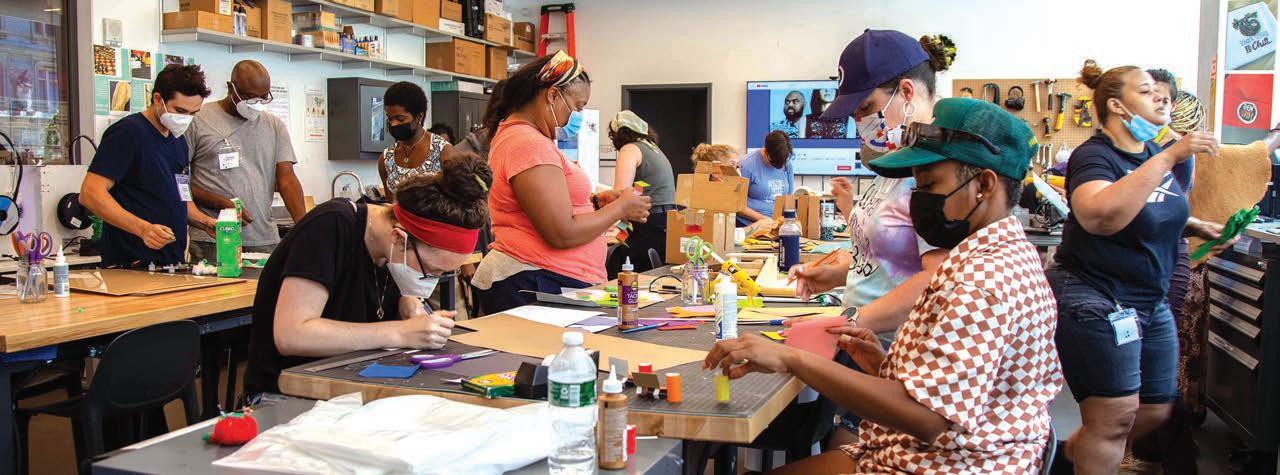
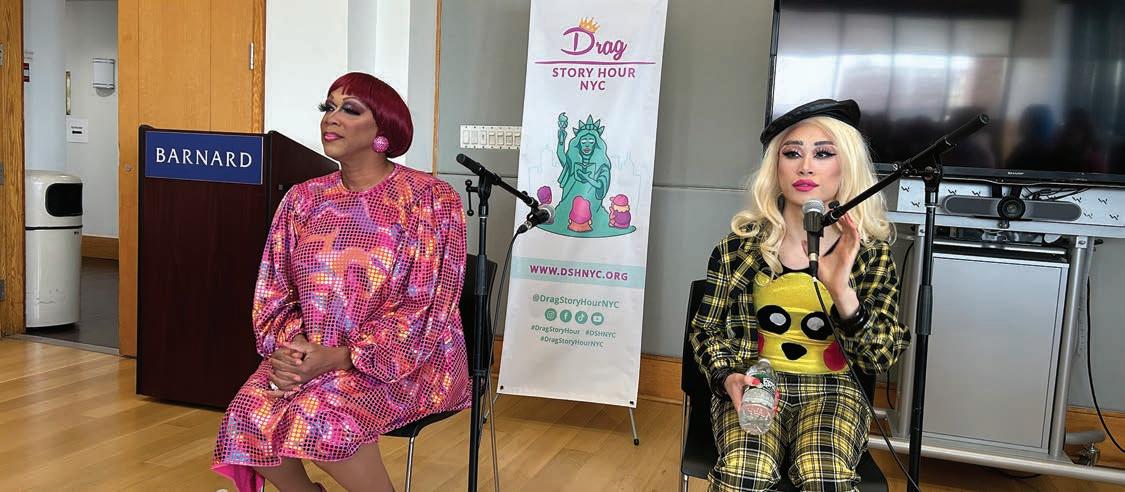
Constitution Day: CEI hosted a screening of Heidi Schreck’s What the Constitution Means to Me and a post-show discussion with Herb Sloan, professor emeritus of history.
Get Out the Vote: CEI partnered with Barnard students in university-wide clubs to register and inform students on voting procedures across the U.S. CEI co-sponsored Bagels and Ballots, a tabling event where more than 40 students accessed voter registration and absentee ballot requests for NYC or their home city/state while munching on a bagel. In an effort to inform NYC voters, CEI hosted a panel discussion, “What’s on the Ballot?”, with local experts on the 2022 ballot initiatives.
Drag Story Hour on Campus: For Barnard Pride, CEI hosted a Drag Story Hour for Adults on Barnard’s campus to stand in solidarity with drag performers following attacks in NYC on Drag Story Hour events and LGBTQ+ communities everywhere as well as efforts to silence drag performance across the country. Drag performers Harmonica Sunbeam, Yuhua Hamasaki, and Flame brought the house down with stories and performances followed by a candid conversation about the state of drag performance. Co-sponsors included DEI, BLAIS, CEP, and the Francine A. LeFrak Foundation Center for Well-Being. Attendees included students, faculty, and staff, 27 in all.
Women in Public Policy: CEI spotlighted women working in public service this year to expose students to careers in the public sector. CEI partnered with SIPA East Asia Institute to host senior official Elizabeth M. Allen, Under Secretary for Public Diplomacy and Public Affairs, Department of State, during the U.N. General Assembly to discuss diplomacy and her wide-ranging career in public service. More than 40 students attended. CEI supported Barnard student leaders to host a groundbreaking event featuring women in elected office that included New York State Governor Kathy Hochul and Vice President Kamala Harris. In the spring, CEI hosted a panel discussion at the New York City Department of Housing Preservation and Development’s offices in lower Manhattan. The panel included Barnard alums Julie Walpert ’87, Assistant Commissioner, and Yuki Mitsuda ’21, Senior Analyst, Business Intelligence & Data. Athena Center for Leadership co-sponsored the event, attended by 25 students and eight junior staffers at HPD for lunch and networking following the panel.
This year was filled with learnings from our programming and collaborations. Barnard’s location in New York City lends itself to a plethora of opportunities. However, it is critical that CEI remains focused on its mission, values, and capacity in order to deliver on the promise of ethical community engagement grounded in respect, reciprocity, and reflection.
That being said, at the close of the 2022-23 academic year, the ambitions of the office often exceed its capacity. CEI is poised to expand capacity through new hires in the coming year. In regard to the constituencies that CEI serves — students, faculty, staff, alumnae, and community partners — the process of relationship building continues to be an essential component of the work. CEI’s name recognition in fall 2022 was low on campus, across the university, and in the neighborhoods surrounding the College. By spring 2023, Barnard and CEI had made significant gains toward not only name recognition but also positive association and familiarity with these same groups. The coming year will provide opportunities for CEI to solidify its baseline programming as well as develop some new areas of growth as it relates to engaged scholarship and community engagement.
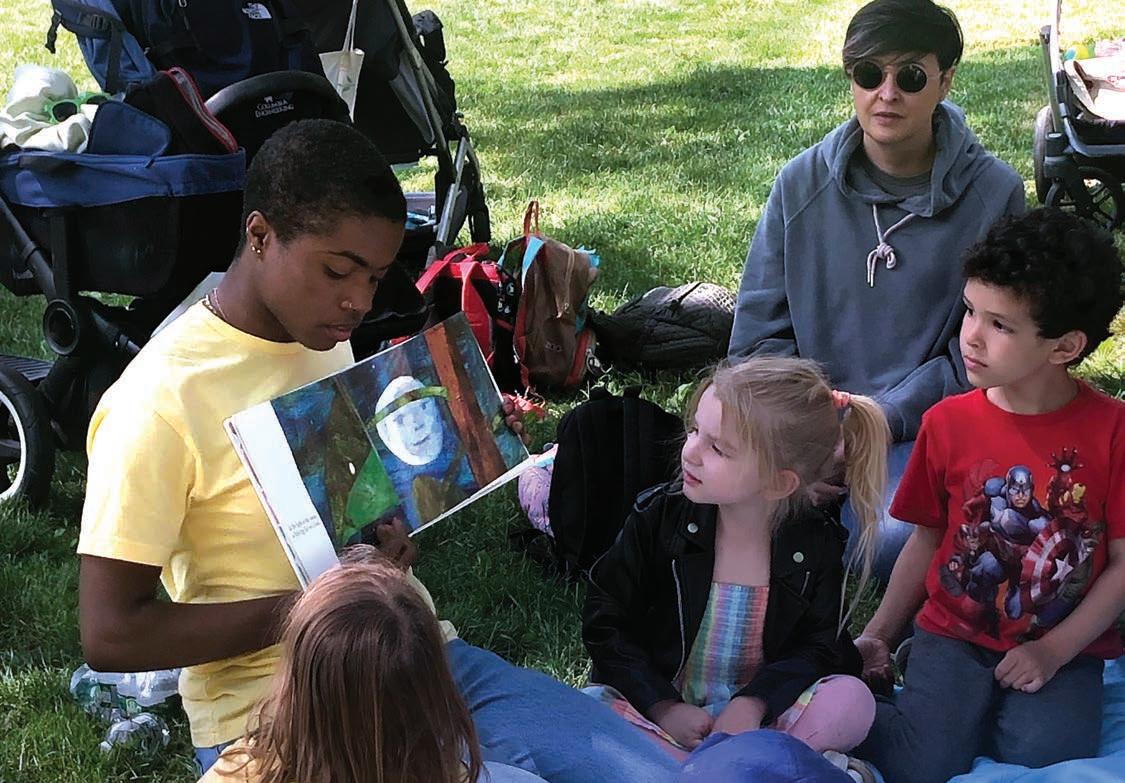
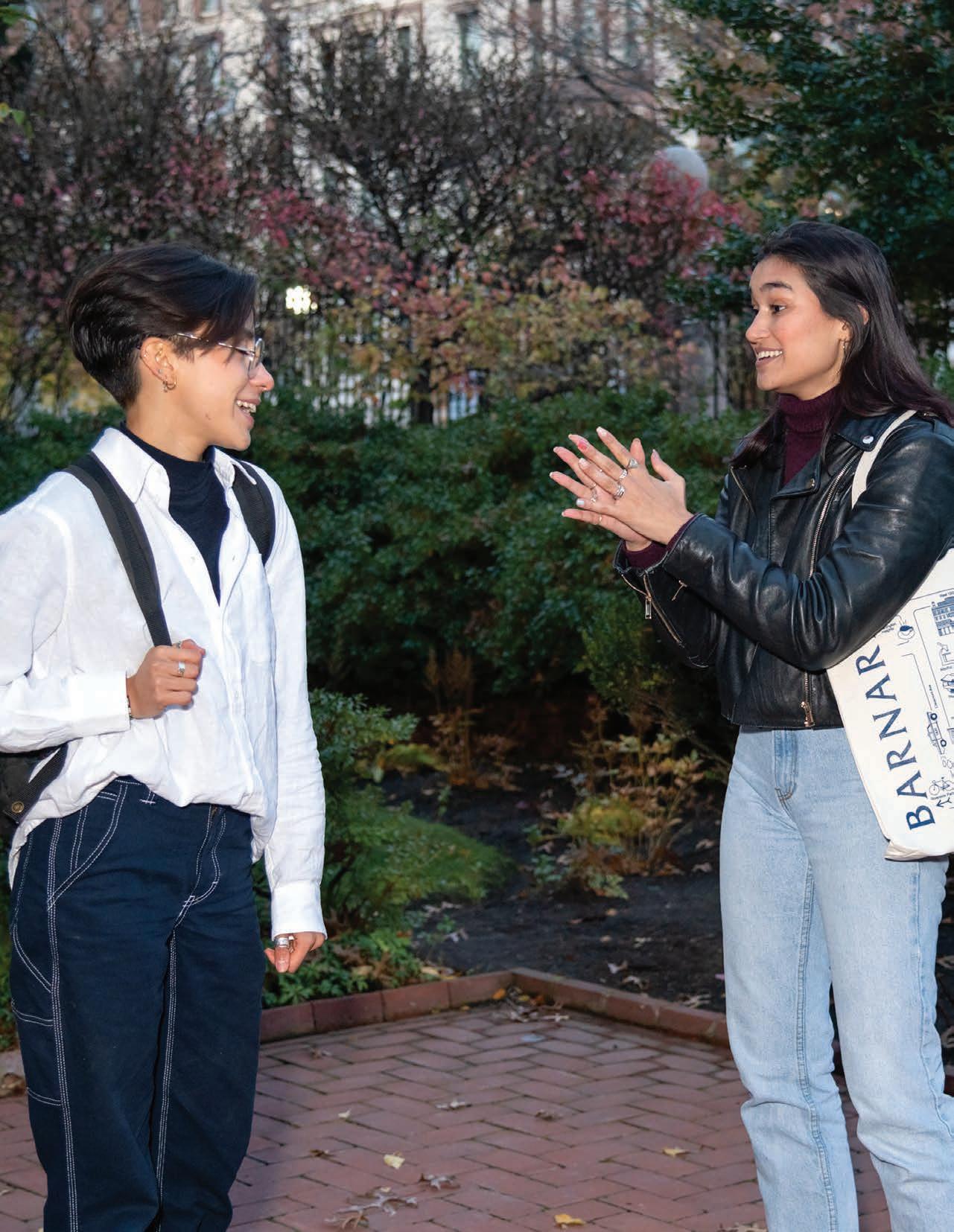
Barnard created the free-standing division of Diversity, Equity, and Inclusion in 2019 as part of the College’s deepening commitment to fulfilling this central element of its educational mission. The division now includes the Office of DEI, the Center for Engaged Pedagogy, the Athena Center for Leadership, and the Office of Community Engagement and Inclusion. Each of these organizations offers a different model for “engaged learning” — a way to ensure that all members of our community have a voice and an equitable opportunity to discover and develop, from our classrooms and labs, to our co-curriculars and social justice initiatives, to the opportunities for education outside our campus gates, across our neighborhood and our city. This rigorous focus on learning ensures that students are at the heart of our work and that DEI is not an optional or disconnected set of activities but a central, coherent, and defining part of Barnard’s identity as a community devoted to education and discovery.
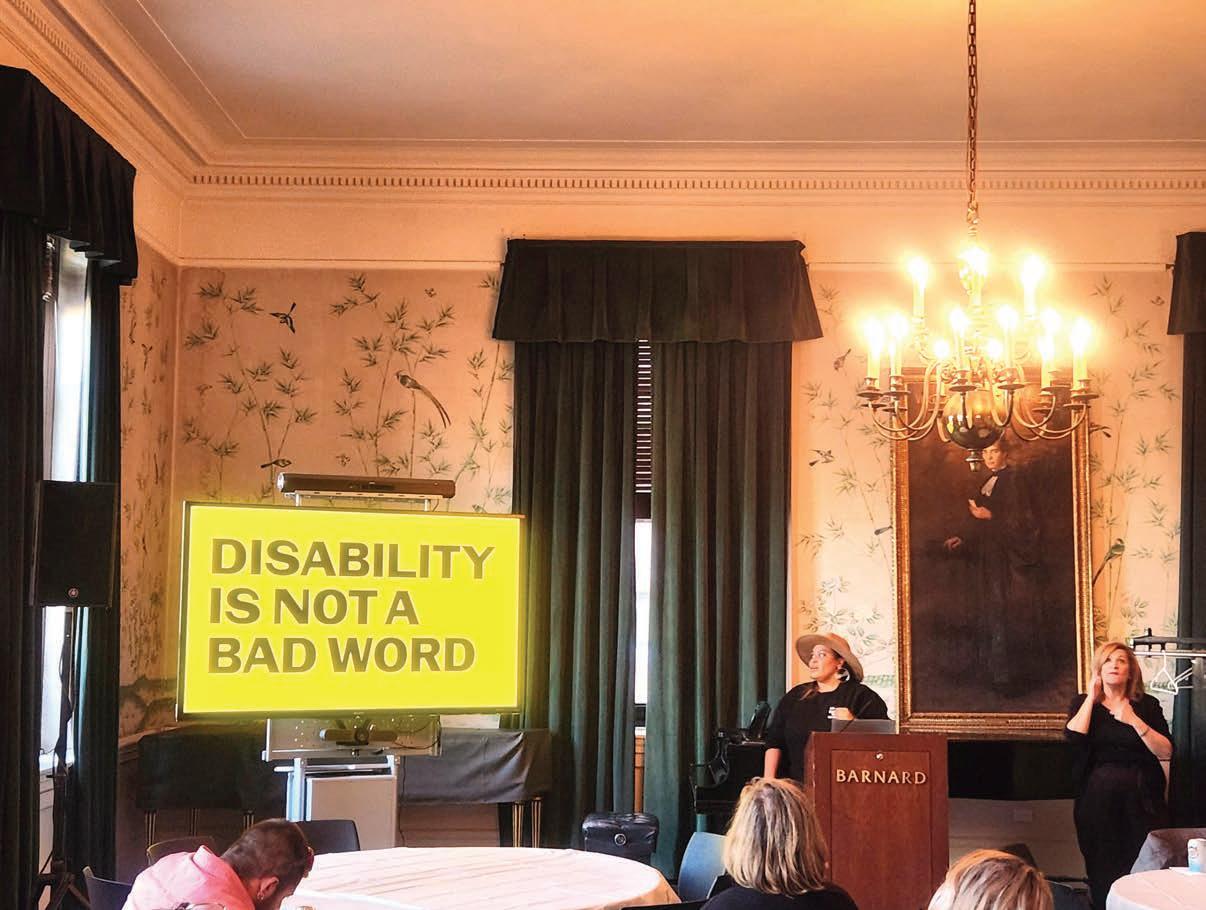
With its unusual responsibilities and relationships across the College, touching on academic, administrative, community, and student-facing activities, the Division of DEI played an important connecting role in 2022-23, as Barnard — like institutions across the nation — grappled with external events and pressures that had a profound impact on members of the College community. The Office of DEI also helped provide a consistent focus on mission and values as the College underwent internal change and leadership transition, ensuring that the momentum of recent years carried forward into a new era. Whether it took a visible lead or worked behind the scenes, the Division helped build trust and pioneer a multidimensional approach that not only helped Barnard navigate challenging issues in the present but paved the way for continued effectiveness that can help define the institution in years to come.
At the same time, as a coalition of four very new administrative structures at Barnard, the Division of DEI made important strides in defining its own responsibilities and developing the distinctive approach that makes Barnard’s DEI activities unusually promising compared with many peers nationwide. That work will continue for many years to come, but as the following examples illustrate, it holds great promise for building Barnard’s distinction and leadership at a time when higher education faces unprecedented pressures.
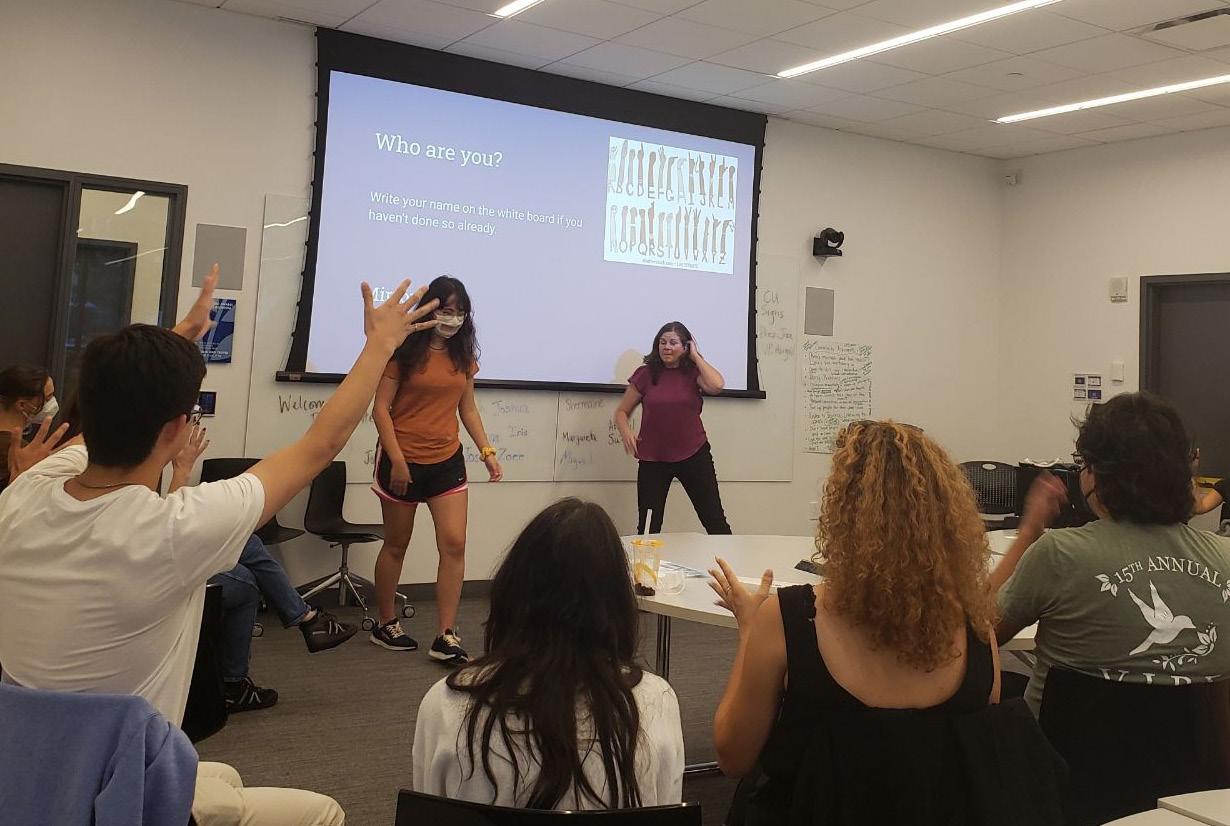
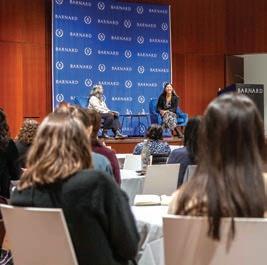
• Supporting the full range of LBGTQ+ identities — At a time when LGBTQ+ people nationwide found their identities under attack, women’s colleges faced both unique challenges and heightened responsibility for navigating these issues. At Barnard, the Division of DEI helped catalyze and lead discussions at the leadership table that helped ensure that all parts of the community were prepared for emerging issues and remained focused on supporting all students. The Office of DEI worked closely with the Division of Campus Life and Student Experience to coordinate work on the ground, while supporting various initiatives, including managing the LGBTQ+@Barnard webpage, which highlights resources available across the College; hosting community circles with the Furman Counseling Center and the LGBTQ+ coordinator to provide a safe space for students; supporting the Gender* in the Archives project; hosting workshops on inclusive language for senior staff and for student interns in various departments; creating and supporting an LGBTQ+ employee resource group for faculty and staff; and hosting an annual keynote event during Trans Awareness Week.
• Reproductive justice — As the nation prepared for the Dobbs v. Jackson U.S. Supreme Court ruling that would eventually overturn Roe v. Wade and remove federal protection for abortion, the Division of DEI helped inform and coordinate discussions that would allow Barnard to respond with specific healthcare support for its community, with educational opportunities for students and all community members and with a clear commitment to the institution’s support for women. Barnard’s multidimensional and unequivocal response helped provide support and opportunities for its community to continue to grow. The Office of DEI collaborated with Health & Wellness to develop community-wide messages; hosted a “Studying the Now” webinar that allowed the community to unpack the meaning of this decision and engage in critical questions about bodily autonomy and health with Barnard scholars; helped lead policy change to expand access to medicated abortion on campus; and awarded a grant co-sponsored by Health & Wellness and the Provost’s Office, supporting projects that meaningfully contribute to and help shape the dialogue around reproductive justice.
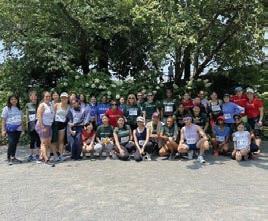

• Affirmative action — Similarly, with the Supreme Court threatening and ultimately banning the consideration of race in higher education admissions, the Office of DEI worked with leaders from the College’s Admissions and General Counsel departments to ensure that Barnard could continue to advocate for its core value of equitable opportunities while finding new ways to live out that value on a practical level. Once the decision was announced, the Office of DEI reaffirmed the importance of diversity to the College’s mission. This fall, the College will engage in continued conversations with students, staff, faculty, alums, and parents around affirmative action through curriculum and special programming. Community members are encouraged to submit questions, concerns, or thoughts that may aid in shaping this programming.
• Rebuilding a post-pandemic culture of belonging — The pandemic upended community-building at colleges across the country, as teaching and learning moved fully virtual, and staff worked remotely. As Barnard emerged from that historic disruption, the Office of DEI has led and catalyzed a wide range of efforts to help rebuild a culture of belonging.
Over the past year, DEI collaborated with the Student Government Association (SGA) on programming efforts that center the diverse cultures of members of our community, such as the College’s first Lunar New Year celebration, iftars during Ramadan, and a Black Liberation Seder. The Office of DEI worked with HR to support
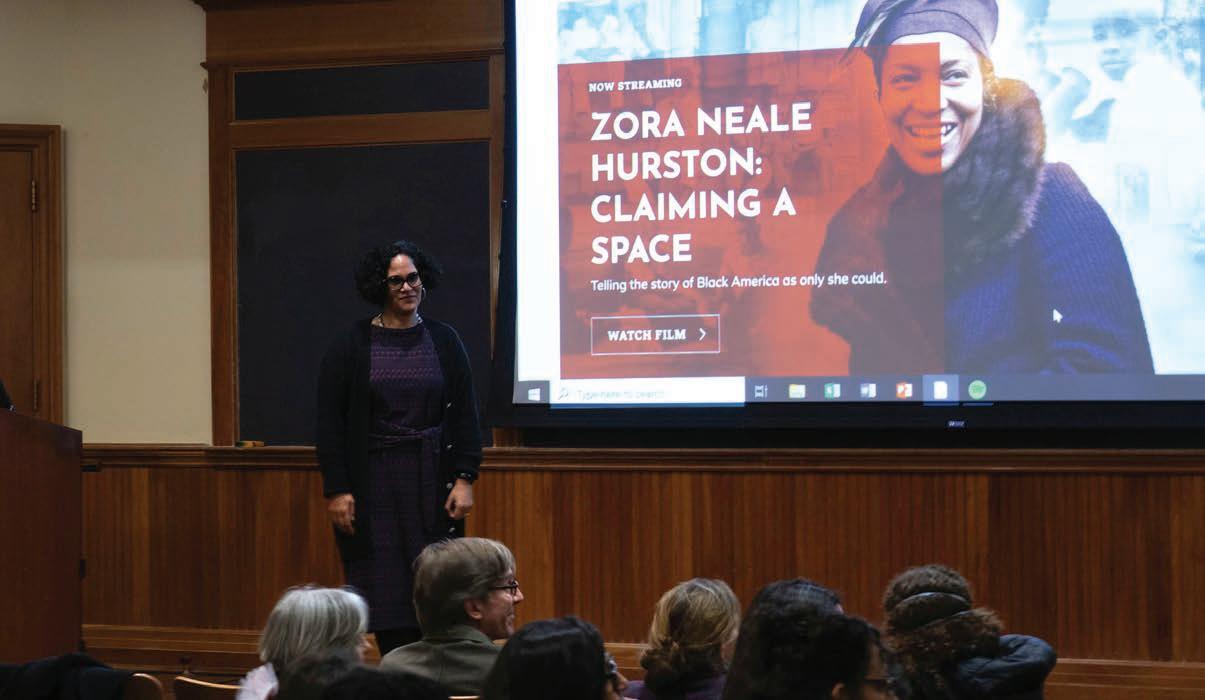
the employee resource groups and the Barnard Staff Advisory Council, as well as hosting the All-Staff Picnic. For faculty, the Office of DEI and the FDD (Faculty Diversity and Development) partnered with Columbia University and Teachers College to create a series of faculty networking programming called TCUB Connects, which features faculty research collaborations and diversity initiatives across Columbia’s schools. The Office of DEI also supported programming for the entire community, such as the Juneteenth celebrations, which featured a 5K walk as well as a musical performance. To support the broadest possible access to this strong slate of programming, the Office shifted the focus of the College’s Diversity Council’s agenda to sharing and promoting DEI activities across the institution.
• Accountability and effectiveness — In fall 2020, the Office of DEI surveyed Barnard students through the National Assessment of Collegial Campus Climate (NACCC) from USC’s Racial Equity Center. This racial climate survey, implemented in a three-year cycle, tests responses to Barnard’s institutional commitment to equity and inclusion, racial literacy and learning, and other important topics. Results from the surveys are shared with the Barnard community for reflection, discussion, and strategic actions and recommendations. In spring 2022, this survey was extended to College staff. Faculty will be surveyed in the fall of 2023.
• Presidential transition — During the time of presidential transition, the Office of DEI ensured that the College’s core mission and DEI values were prevalent throughout the process. As the search moved forward, the VP for Inclusion and Engaged Learning led a training for committee members, giving them the tools and context necessary to conduct an equitable search.
• Promoting diverse hires — The Office of DEI led numerous training sessions around equitable hiring practices and implicit bias for administrative departments. During the year, the Office worked closely with Development and Alumnae Relations, one of the largest offices at the College. For the 2023-24 academic year, the Office will collaborate with the FDD and General Counsel to update faculty hiring practices. Also underway is sensitivity training supported by the Office of DEI, HR, and Title IX.
From their creation, the four centers and offices that make up the Division of DEI have all adopted an opt-in model, making participation available but never mandatory. This honors the choice and free expression of community members, and in the long run, voluntary participation builds community ownership and responsibility, an important strategic element of helping the College to fulfill this part of its mission in a meaningful way. Given the rapid turnover of students, it also means that promotion, persuasion, and strong campus-wide communication will continue to be important elements of our work.
One example is “All Bodies, All Minds: Understanding Disability Justice,” a two-part dialogue-driven workshop last spring that explored disability justice and ableism and investigated what the College can do to affirm and celebrate people with disabilities. The first session, in particular, had strong participation after we worked with each department to encourage them to send a representative; we will continue to seek creative ways to engage not just the campus as a whole but the constituent parts — departments, offices, committees, clubs, special interest organizations — where members of the Barnard community live every day and most closely identify.
On a related note, institutions around the country have noted a downturn in engagement, with community members stepping back after the extraordinary work demands created by the pandemic, and activists similarly stepping back after the historic energy expended during the peak of the Black Lives Matter movement. One response the Office of DEI has taken to that phenomenon is to focus more specifically on smaller groups within the Barnard community, to listen more closely to their needs, and to dig deeper into particular issues of concern for them. A notable example of this work is “Narratives of What Now: Thinking of Tyre Nichols,” hosted by the Office of DEI, in which Professors Yvette Christiansë and Jennie Kassanoff and colleagues facilitated a conversation to help unpack and contextualize the state violence that killed Tyre Nichols. The “Studying the Now” webinar series also provides a space for community members, including parents and alums, to examine societal issues and participate in fearless dialogue. Specifically, “Dismantling Anti-Black & Antisemitic Rhetoric” explored the connections between anti-Blackness and antisemitism, as well as what is distinctive in the contemporary moment in which they are linked.
Finally, the Office of DEI recognizes the importance of examining Barnard’s institutional history as part of helping the College advance its values now and in the future. The Gender* in the Archives project, a multimedia installation featuring accounts from a handful of alums and current students, has helped center trans and nonbinary voices with the goal of highlighting identity, community, endurance, and joy.
Looking ahead, VP Rosales and Professor Monica Miller are leading Barnard’s efforts to celebrate upcoming centennials of Zora Neale Hurston ’28, one of the College’s most inspiring, pathbreaking, and illustrious graduates. Even as it celebrates Hurston’s life and contributions, the Centennial Committee will draw on the resources of the DEI Office, Africana Studies, American Studies, Anthropology, CCIS, First-Year Experience, the Archives, and the academic centers to examine how the College related to Hurston in her time, as well as Black students’ experiences now. This is an outstanding example of how the College can tap its full resources to foster deep engaged learning at every level, recommitting to national leadership and community partnership toward a future that is diverse, inclusive, and equitable.